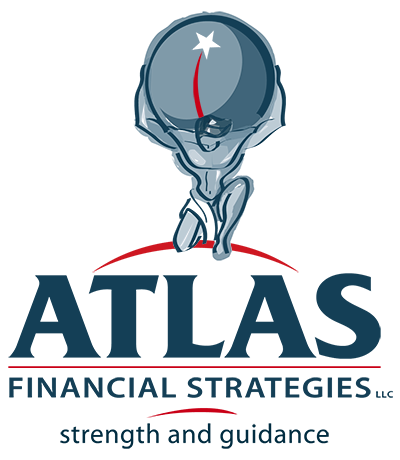- Our Process
- Video Learning Library
- Third Party Resources
- In the News
- Contact
- Investment Team
- Informational Guides
- Client Forms
- Our Firm
- I Just Sold My Business—Now What?
- How to Delay Withdrawals on Your Retirement Accounts
- Blog
- Investment Management
- Preparing Your Business for Sale: Navigating Due Diligence
- The Nautilus Group®
- Special Needs Planning
- Navigating Income Tax
- Life plan for your business®
- What You're Failing to Consider About Your Future Part I: Business Owners
- What You're Failing to Consider About Your Future Part II: Retirees
- What You're Failing to Consider About Your Future Part III: Young Professionals
- How Much Life Insurance Do I need?
- What You Should Know About Your Emergency Fund
- How Pre- and Post-Tax Contributions Affect Your Retirement
- Should You Do a Roth Conversion?
- Managing Debt: The Snowball vs. The Avalanche
- Your Extra Cash: Is It Better to Pay Off Debts or Invest More Money?
- Student Loans: What's the Best Way to Pay Them Off?
- Maximizing Your Money: Find the Most Efficient Use of Your Dollar
- Planning Post-Pandemic: Survival Tips for Business Owners
- Preparing Your Business for Sale: Are You Ready?
- Preparing Your Business for Sale: Pre-Sale Task List
- Preparing Your Business for Sale: Questions to Ask Potential Buyers
- Preparing Your Business for Sale: What to do When Things Get Serious
- When a Retirement and Legacy Arrangement (RALA) Makes Sense for You
- Know Your Numbers: The Importance of Creating Cash Management Systems Before Growth
- Tax Strategies for Business Owners
- Your Growing Business: Hiring the Right People
- Creating an Emergency Succession Plan to Protect Your Business
- Estate Planning: Equal Isn't Always Fair
- What’s the Greatest Gift You Can Leave Your Family? A Plan for Future Financial Success
Tax Strategies for Business OwnersEvery business owner wants to know how to ease their tax burden, but it's crucial to consider the business's holistic finances more than its short-term tax expenses. Isolating the issue of taxes can result in costly oversights or expensive choices. Not every money-saving move is good for your company's financial health. Here, we cover some powerful tax strategies for business owners who want to know how to wisely manage their tax burden without sacrificing their company's financial health. Don't Let the Tax Tail Wag the DogBusiness owners often focus on tax minimization to the exclusion of all else. While taxes do make up an essential piece of the puzzle, they don't form the entire financial picture. Companies that focus too heavily on tax savings may end up sacrificing long-term fiscal responsibility for the sake of short-term tax savings. When you're evaluating a tax decision, consider whether it makes sense both for this year and next year. Too many CPAs focus on immediate tax savings, looking only at moves that will result in savings for the current tax return. Business owners often tell us that they've been advised to spend a large sum of money before the end of the year for the sake of extra tax savings. However, if you're making a $100,000 purchase to cash in on $30,000 in tax savings, you've still spent $70,000 more than you would have otherwise. Take your eyes off the $30,000 savings and carefully evaluate whether the move is really worth that $70,000 expense. If you're driven to unnecessary spending for the sake of immediate tax savings, you will likely find that your choices aren't being driven by the optimal motivators for long-term growth. Are you making smart moves for your taxes, or are your taxes pushing unwise moves for you? Prioritize Wise InvestmentsAny time you're considering a major purchase, you should step back and evaluate the big picture. Manage your finances with a thoughtful eye toward wise and intentional investments. Focus on growth and seek out mindful ways to reinvest in your company. This approach equips you to successfully scale your business and grow your wealth for the future. Step back from frantically nickel-and-diming your taxes and instead keep your eye on stable growth for lasting success. One of the best ways to prioritize your investments is to consider the costs versus the savings of each purchase. As mentioned above, spending an extra $70,000 isn't always a wise investment if you aren't purchasing something that you really need. Ask what this purchase will do for the business and how much you expect it to deliver in returns. Will the purchase increase productivity, boost the value of your products and services, or reduce your maintenance and repair costs? You should have a clear idea of how you'll recoup your investment before making a major purchase. A great example of a smart investment is a new oven for a restaurant with a 20-year-old appliance. If the current oven has frequent repair and maintenance costs, a new appliance will reduce these expenses immediately. The new installation may also be able to increase output. If the current oven makes one pizza a minute and the new oven makes 1.5 pizzas a minute, you'll enjoy increased productivity that can translate to greater income. Make sure your financial purchases always have this kind of solid justification behind them. Be ProactiveProactive financial planning is far better than reactive planning. Proactive planning takes place throughout the year and involves thoughtful, intentional choices that will help grow the business. Reactive planning is what happens when you get to the end of the year and your CPA recommends that $100,000 purchase for some quick savings, but you don't know what to buy. If you're scrambling to simply find something to buy, you're probably not making a smart or mindful purchase. If you already have a long-term financial plan in place for steady and proactive growth, you'll know exactly what your next $100,000 purchase should be. You'll know if this is a timely buy or something that you'd planned to put off for another year or two in the future. Proactive planning will help you manage your overall financial health without succumbing to the temptation to make a snap decision for the sake of tax savings that might not ultimately serve you. Engage a Second Set of EyesAlways have at least two pairs of eyes on your taxes. We've found many clients who either didn't have assistance or were working with professionals who weren't the right fit for their needs. One client of ours who's a surgeon with side businesses like real estate syndication had a messy tax return with several points for concern that might have invited an audit. A second set of eyes could easily see these points of concern, identifying areas that needed to be cleaned up. Another client of ours found that though they had a CPA, they had outgrown that particular CPA's scope of expertise. When we reviewed their finances, we found some key elements missing from the points counted toward the QBI (qualified business income) deduction. Once we'd discovered the oversight, the client was able to both adjust their current return and file amendments on tax returns from previous years. Having a second set of eyes helped the client ultimately get a significant amount of money back that may have otherwise been lost. As a Member Agent of the Nautilus Group(R), which is a service of New York Life, Andrew can leverage the elite staff of Nautilus professionals to review your tax strategies and planning decisions to help ensure you are on the right track. Taxes are complicated. Having that second look at your tax documents can help you save thousands of dollars, padding your finances wisely for future financial growth. These tax strategies work best when informed by an in-depth knowledge of your business and goals. That's why it helps to partner with both a holistic financial advisor and a CPA. As advisors, we help you pull back and see the big picture to ensure that your strategy is in alignment with your overarching goals. However, we are not attorneys or tax professionals and don't provide tax or legal advice. However, we can provide valuable tax tips and strategies and work alongside the rest of your professional planning team to give you the well-rounded approach you need. |
 Quick Links
Quick Links
